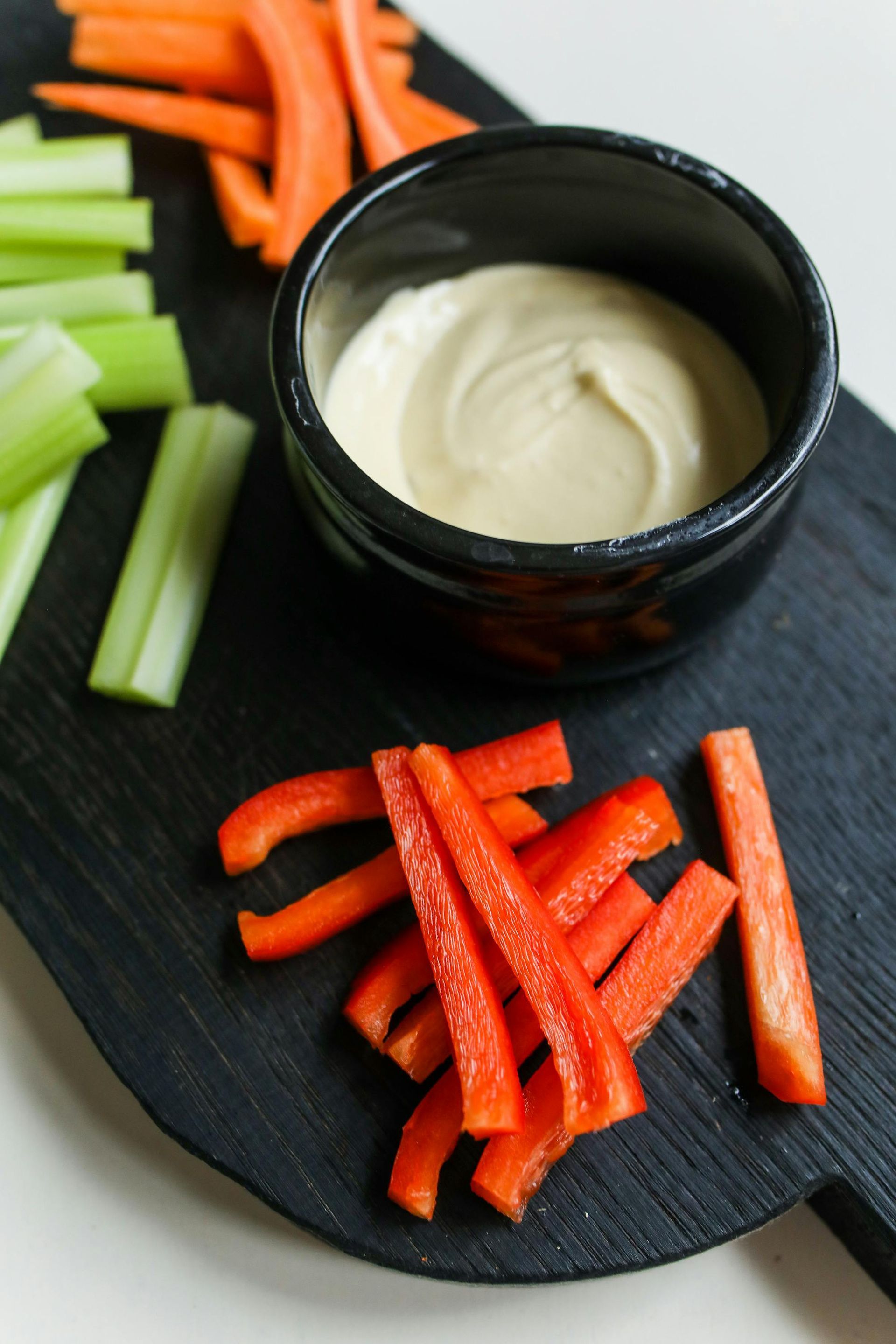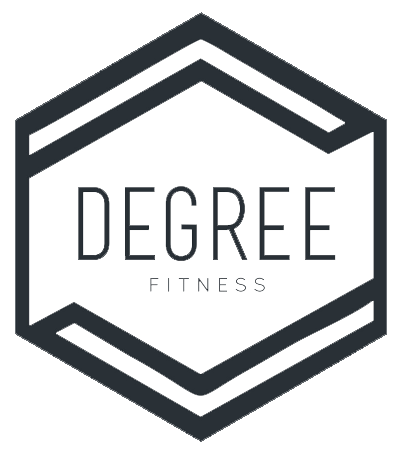The Secret to Lasting Results
August 19, 2019
| By Mairead Rodgers, RD, PHEc, CF L1 Trainer
One of the main reasons people either come to Degree or start nutrition coaching with me is because they want to see results of some description. Usually, the results they want are either weight loss or muscle gain, or both. These are things we can absolutely help with, and results our clients and members regularly see. But there’s one thing in common with the clients who see the results AND are able to keep the results for the long term. That thing is CONSISTENCY. The best thing you can do for your nutrition and fitness goals is to find something that works for you and that you like, and then stick with it. If we’re always chasing after the next shiny object, we’ll never stick with a nutrition and fitness program long enough to see the results we want. Results take time and patience and again, consistency. Example #1: You’re so excited to start CrossFit after finishing On Ramp! The first week, you get in the gym 5 days straight – good for you! The next week things are a bit busy and you only get there 3 times – still awesome. You get discouraged that you didn’t make it as many times as planned but you only find yourself in the gym once the next two or three weeks. You notice the scale hasn’t moved and you’re not getting any stronger so you throw in the towel and cancel your membership. A month later you repeat the process at another gym or with another type of exercise. In this case, we’re definitely lacking some consistency. To fix this, aiming for 2 or 3 times a week might be a more reasonable goal to start with, especially if it’s something you think you can stick to. Whether it’s CrossFit or another type of fitness, you’ve got to do it consistently to get and keep the results you want. When you’re starting CrossFit out of On Ramp, this is a conversation our coaches would have with you to make sure you’re setting attainable goals! Example #2: It’s day 1 of your new diet! You do amazing today, making all the choices that align with your specific diet and tracking your food meticulously. You’re able to keep this up for 5 days before life gets in the way and you blow your diet for the next 3 days. You decide to start a different diet next week and the same process happens. You get frustrated that you can’t seem to stick with a diet to see the results you want. In this example, what we need are nutrition goals that you can meet consistently. Going on and off diets is hard of you, both mentally and physically. Your nutrition plan should fit with your life and allow for days that aren’t perfect. In both cases here, what’s lacking and preventing progress and results is just not being able to be consistent. When we’re starting out with nutrition and fitness, it’s best to start with goals we know we can reach CONSISTENTLY and build from there, instead of going all in with something and failing, and then repeating the process with something else a few weeks later. Sure, there are going to be times when you can’t get to the gym or that healthy eating just isn’t going to happen. But the more consistent you are with your habits when you can be, the easier it will be to get back on track at those times and the less impact you’ll see on your progress. |
| If you don’t know how to be more consistent to see the results you want, or you’re looking to get started with something more, let us help! Click here to book your FREE 15-Minute Bite-Sized Nutrition Chat to talk about your goals and how we can help you get there with nutrition. Or if you’d rather start with fitness, click here to book for FREE No Sweat Intro to get started! |

Written By: Mairead, Registered Dietitian Nutrition labels can be confusing! But they're on packaging to help you know more about your food so you can make choices that align with your health and fitness goals. Grab your nearest food label. On the black and white Nutrition Facts table, you'll see a list of nutrients with values beside them. For most of them, there will be an amount in grams or milligrams listed on the left and a percentage over on the right hand side. That percentage can help give us context! As you'll see listed in teeny writing at the bottom of the table, 5% is a little, 15% is a lot. This means that if there's a nutrient we want more of, like fibre, we want that percentage to be higher, ideally towards 15% or more. If there's a nutrient we want less of, we want it to be closer to 5%. For most normal healthy people, we want to have less sodium (salt), sugar, and saturated fat, while including more fibre. There may also be times when you want to focus on a specific vitamin or mineral, like iron or calcium. These are also listed with a percentage and can be used the same way. A key part of label reading is knowing what is most important for you. For many food categories, you can't prioritize everything. There may not be one product that is the lowest in saturated fat AND the lowest in sodium AND the highest in fibre AND has the most protein AND has the most iron ... the list could go on. But if you can narrow it down to a couple things that matter most for your health and fitness goals, you can start making choices based on food labels, without all the overwhelm. Check out your food labels, use the percentages, and make choices that fit with your goals! Looking for more personalized nutrition advice? Let's chat! Email mairead@degreefitnessseaforth.com for more information about our Nutrition Programs, or click HERE to book your FREE Bite-Sized Nutrition Chat!

Written By: Mairead, Registered Dietitian Snacking causes a lot of worry for many people! Is snacking bad? When should we be snacking? What's the best snack? Snacking itself isn't a bad habit, unless it's not aligned with your health and fitness goals. Snacks can actually do a lot of good to keep our energy levels up throughout the day and help meet our nutrition needs. Let's check out four ways you can improve your snacking habits! 1. Think about why! If you're concerned about whether your snacks are a problem, it's worth thinking about why you're snacking. Are you hungry between meals? Do you need some fuel before or after a workout? Are you bored at work in the afternoon or need a pick-me-up? Do you need something to do with your hands while watching tv? Are you starving at the end of the day when you get home before you have a chance to make dinner? Snacks serve lots of purposes, from keeping our energy stable during the day, to meeting emotional needs. If you don't feel good about why you're snacking, it might be time to find some other way to meet that need. 2. Plan for your snacks! Often, we may know we need a snack, but not be able to make a healthy choice about it because we're too busy or just too hungry. A little planning goes a long way! Planning ahead for these times can help us make choices that align with our goals, and have something at the ready before we're too hungry to make that healthy choice. Pack a snack or have one at the ready during the times of day or situations when you know you'll need it. 3. Make them satisfying! If a snack isn't satisfying, we'll be reaching for something else soon. For longer lasting energy, choose snacks that have a combination of protein and carbs. This might include yogurt with berries, a higher protein granola bar, crackers and veggies with hummus, or even a couple handfuls of trail mix. If you find yourself finishing your snack without even noticing what you've eaten, try taking a minute to eat more mindfully and focus on your food. This will help you feel more satisfied with it! 4. Fill your nutrition gaps! Snacks are another opportunity to add nutrition to your day. Are there specific foods you're trying to add more of to your diet? Are there nutrients you feel you may be lacking? Use snacks as a way to add these in. If you're concerned about protein, try adding canned tuna, hardboiled eggs, or Greek yogurt to your snacks. If you feel you're lacking vegetables or fruit, include at least one in your snack. If you're trying to include more plant-based proteins, lean on bean-based dips or try roasted chickpeas. The options are endless! Remember, snacking isn't good or bad, and can serve a lot of different purposes. Try using these tips to help your snacking align better with your health and fitness goals! Looking for more personalized nutrition advice? Let's chat! Email mairead@degreefitnessseaforth.com for more information about our Nutrition Programs, or click HERE to book your FREE Bite-Sized Nutrition Chat!

Written By: Mairead, Registered Dietitian As a Dietitian, I work with a lot of different people. One common thread is that we talk about excuses. So many people come in to a nutrition consultation and tell me about their challenges with nutrition and fitness, and then follow it up by saying something along the lines of "I know these are just excuses, I can do better". The things we often consider excuses can include having a busy job and a busy family life. Working weird hours. Struggling with the cost of groceries. Caring for loved ones. Managing health concerns, chronic diseases, or injuries. The list goes on. For my nutrition clients, I rarely consider any of these things to be excuses. It's not an excuse that you can't eat well because you work long hours and then take your kids to their sports practices - these are very real reasons why you're struggling to make healthy choices. It's not an excuse if you work nights and need to get some sleep so you didn't make it to the gym - it's as aspect of your life that makes getting enough exercise challenging. Think about the things you might consider to be your excuses for not "doing better" with your health and fitness. Are they really just parts of your life or the season you're currently in? None of these things should be making you feel bad or like you're making excuses. But on the flip side, these reasons also don't mean we need to throw in the towel on our goals entirely. They mean we might need to get a bit creative, decide what's really important to us right now, and ask for help when we need it! Instead of feeling bad about your "excuses" that aren't really excuses, it might be time to find some new ideas. Working with a Dietitian can be a great way to figure out what's actually important in your health and fitness goals, and come up with some new ideas to get you there. There are always steps we can take in the right direction to move past those "excuses" and work together for a happier and healthier you! Looking for more personalized nutrition advice? Let's chat! Email mairead@degreefitnessseaforth.com for more information about our Nutrition Programs, or click HERE to book your FREE Bite-Sized Nutrition Chat!
